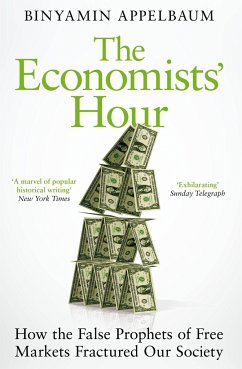
Eight-hour Day
Versandkostenfrei!
Versandfertig in 6-10 Tagen
26,99 €
inkl. MwSt.

PAYBACK Punkte
13 °P sammeln!
The eight-hour day movement or 40-hour week movement, also known as the short-time movement, had its origins in the Industrial Revolution in Britain, where industrial production in large factories transformed working life and imposed long hours and poor working conditions. With working conditions unregulated, the health, welfare and morale of working people suffered. The use of child labour was common. The working day could range from 10 to 16 hours for six days a week.Robert Owen had raised the demand for a ten-hour day in 1810, and instituted it in his socialist enterprise at New Lanark. By ...
The eight-hour day movement or 40-hour week movement, also known as the short-time movement, had its origins in the Industrial Revolution in Britain, where industrial production in large factories transformed working life and imposed long hours and poor working conditions. With working conditions unregulated, the health, welfare and morale of working people suffered. The use of child labour was common. The working day could range from 10 to 16 hours for six days a week.Robert Owen had raised the demand for a ten-hour day in 1810, and instituted it in his socialist enterprise at New Lanark. By 1817 he had formulated the goal of the eight- hour day and coined the slogan Eight hours labour, Eight hours recreation, Eight hours rest. Women and children in England were granted the ten-hour day in 1847.












